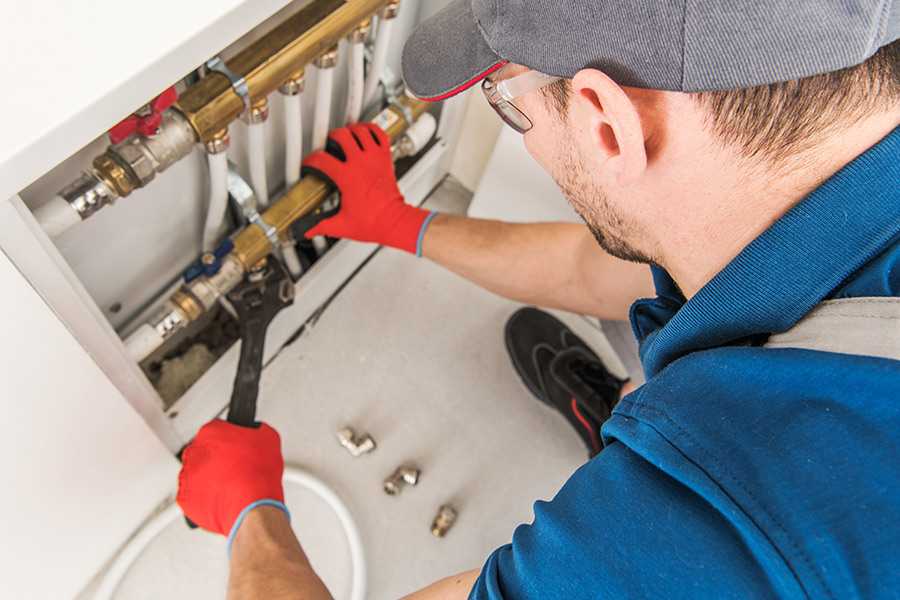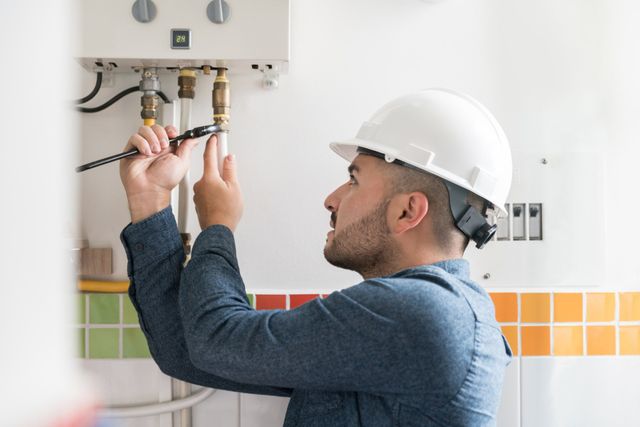Ways to Address the Common Water Heater Emergency Challenges
Ways to Address the Common Water Heater Emergency Challenges
Blog Article
Almost everyone has his or her own theory when it comes to Common Hot Water Heater Problems.

A hot water heater is one of the most essential fundamental home appliances that can be located in a home. With water heaters, you do not need to undergo the tension of heating water by hand each time there is a demand to take a bath, do the laundry, or the meals. There is constantly a possibility that your water heating unit would act up as with the majority of mechanical gadgets.
It is important to keep in mind any kind of little breakdown as well as tackle it quickly prior to things leave hand. Many times, your hot water heater starts to malfunction when there is a build-up of debris as a result of continuous use. As a precaution, routine flushing of your water heater is advised to prevent sediment accumulation and also prevent practical failing.
Usual water heater emergency situations and also how to handle them
Too little hot water
Taking care of an inadequate supply of hot water can be discouraging. It might be that the hot water heater can't support the hot water demand for your house. To handle this trouble, you can try to change your heating unit's temperature dial and await a couple of minutes. If the issue lingers, you can request the aid of an expert plumber. Alternatively, you can update your hot water heater to one with a larger capability.
Rising and fall water temperature level.
Your water heater might start producing water of different temperature levels generally ice hot or cool warm. There may be a requirement to replace either the thermostat or the home heating unit of your water heater.
Leaky hot water heater container.
A leaking tank could be a sign of deterioration. It might trigger damage to the floor, wall and electric devices around it. You can also go to risk of having your apartment swamped. In this situation, you need to shut off your water heater, enable it to cool down, as well as thoroughly seek the source of the issue. At times, all you need to do is to tighten up a couple of screws or pipe links in cases of small leaks. However if this does not function and the leak lingers, you might require to utilize the solutions of a service technician for an ideal substitute.
Tarnished or odiferous water
When this happens, you need to know if the issue is from the water or the storage tank source. If there is no funny smell when you run cool water, then you are certain that it is your water heating system that is damaged. The smelly water can be created by rust or the accumulation of microorganisms or debris in the water heater storage tank.
Conclusion
Some home owners neglect little warning and also minor faults in their hot water heater system. This just causes further damages and a feasible complete malfunction of your home appliance. You should take care of your water heater faults as quickly as they come near stay clear of more expenditures and unnecessary emergency troubles.
With water heating units, you do not require to go through the stress of heating water by hand every time there is a requirement to take a bath, do the washing, or the meals. It might be that the water heating system can't support the hot water demand for your house. Your water heating unit could begin producing water of different temperatures typically ice scalding or cold hot. If there is no funny smell when you run chilly water, then you are particular that it is your water heating system that is faulty. The odiferous water can be caused by corrosion or the build-up of bacteria or debris in the water heating system tank.
What’s Wrong With My Water Heater?
Not Enough Hot Water
You probably encounter this problem in the shower or while washing dishes. As you run your water, you’ll notice it starting to cool down. Turning up the hot faucet may not work, or it may only heat the water for a short period. Your hot water probably comes back and works normally one or two hours after you use it up.
If you’ve never had enough hot water, your heater may be too small for your home. If you haven’t had a problem until recently, there’s probably something’s wrong with your heater’s thermostat. Try adjusting it to see if you can feel a difference. Even if the thermostat’s working, the heating element itself could have burnt out. It’s also possible that a clog has restricted water flow into or out of the heater. Luckily, none of these problems are hard to fix, as long as you call them in early.
Water is Too Hot
Unregulated water heaters can make water dangerously hot. You probably have this problem if you’ve been scalded by your hot water. It’s also a likely culprit if you have trouble getting your faucets to produce a comfortable temperature. This problem is easy to fix, but it can also be a serious health hazard if you don’t address it. If you think your water is too hot, don’t doubt yourself; look into it!
Start by finding your heater’s thermostat and mark its position with a pen. Turn the thermostat to a cooler setting. Wait a couple hours to see if the problem is solved. If it isn’t, listen for boiling in the tank and look for water that comes out of the faucet steaming. In those cases, your temperature-pressure relief valve may be malfunctioning. This is a serious problem that can be dangerous, so you should have it looked at right away.
Discolored or Smelly Water
If all your water looks rusty or smells weird, there’s probably a problem with your pipes. If only your hot water looks weird, however, your water heater is probably at fault. Hot water discoloration comes in several varieties. It could look orange or brown-ish, taste rusty, or feel grainy. It could also look yellow or green-ish and taste gross or feel slimy. Either way, it’s a sign that there’s something wrong with your water heater’s tank.
Usually, hot water discoloration means sediment has built up in your tank. Sediment is made up of hardened minerals that accumulate on the inside of the water heater’s walls. When enough sediment builds up, it causes all kinds of problems–including your discolored water. Try flushing your water heater tank to clean out built up sediment. If the water still tastes rusty, your tank’s rust-preventing anode rod may have worn out. A pro can replace an anode rod easily, but without one, your tank could rust beyond repair relatively quickly.
Leaking
Water heaters can leak from several different places, and each leak means something different. If the leak is coming from a pipe above the heater, it’s possible the tank itself hasn’t been compromised. The cold inlet, hot outlet, and T&P pipes could all leak from above. Try tightening the problematic valve. If that doesn’t work, then the valve or pipe will have to be replaced.
If the leak is coming from the bottom of the tank, it’s important to determine exactly where it is. The leak could be coming out of the drain valve or your T&P valve below the tank. You can replace those valves and preserve the tank itself. If you notice the water tank itself leaking, however, that probably means it’s corroded beyond the point-of-no-return. Leaking water heaters are a big deal, so you should get yours replaced ASAP.
https://www.punctualplumberdallas.com/blog/whats-wrong-water-heater/

I ran across that blog posting about Warning Signs You Need Water Heater Repairs while browsing on the web. Are you aware of another person who is curious about the niche? Why not share it. We appreciate reading our article about Is Your Water Heater Leaking?.
Quick and efficient? Ring us! Report this page